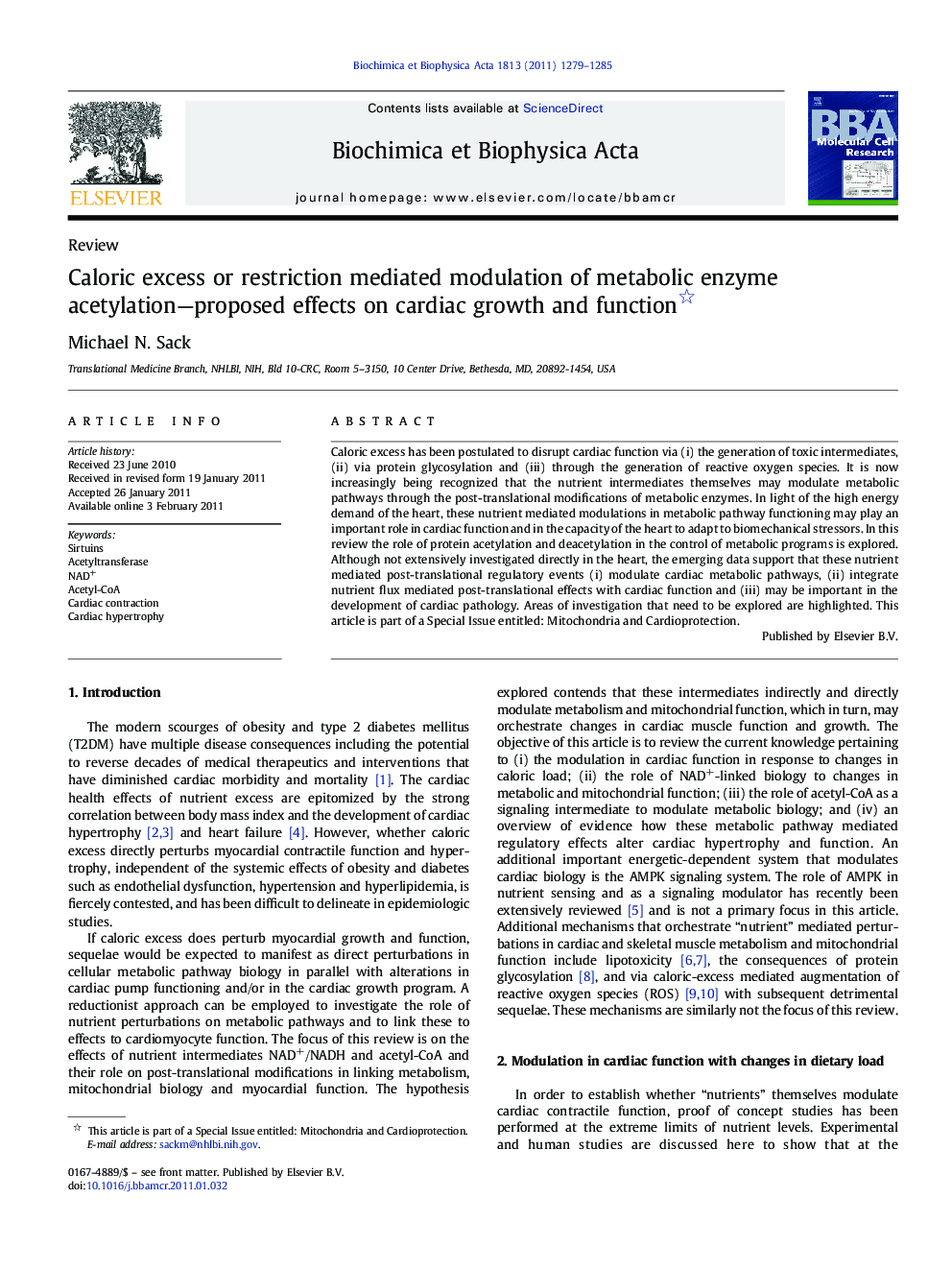| Article ID | Journal | Published Year | Pages | File Type |
|---|---|---|---|---|
| 1950826 | Biochimica et Biophysica Acta (BBA) - Molecular Cell Research | 2011 | 7 Pages |
Caloric excess has been postulated to disrupt cardiac function via (i) the generation of toxic intermediates, (ii) via protein glycosylation and (iii) through the generation of reactive oxygen species. It is now increasingly being recognized that the nutrient intermediates themselves may modulate metabolic pathways through the post-translational modifications of metabolic enzymes. In light of the high energy demand of the heart, these nutrient mediated modulations in metabolic pathway functioning may play an important role in cardiac function and in the capacity of the heart to adapt to biomechanical stressors. In this review the role of protein acetylation and deacetylation in the control of metabolic programs is explored. Although not extensively investigated directly in the heart, the emerging data support that these nutrient mediated post-translational regulatory events (i) modulate cardiac metabolic pathways, (ii) integrate nutrient flux mediated post-translational effects with cardiac function and (iii) may be important in the development of cardiac pathology. Areas of investigation that need to be explored are highlighted. This article is part of a Special Issue entitled: Mitochondria and Cardioprotection.
Research highlights► Caloric excess predisposes to altered cardiac energetics and function. ► Caloric excess similarly disrupts cardiac mitochondrial function. ► Acetylation of mitochondrial proteins may contribute to these nutrient effects. ► Sirtuin enzymes appear to directly modulate these processes in the mitochondria. ► Modulation of sirtuin biology may have beneficial cardiac effects.
